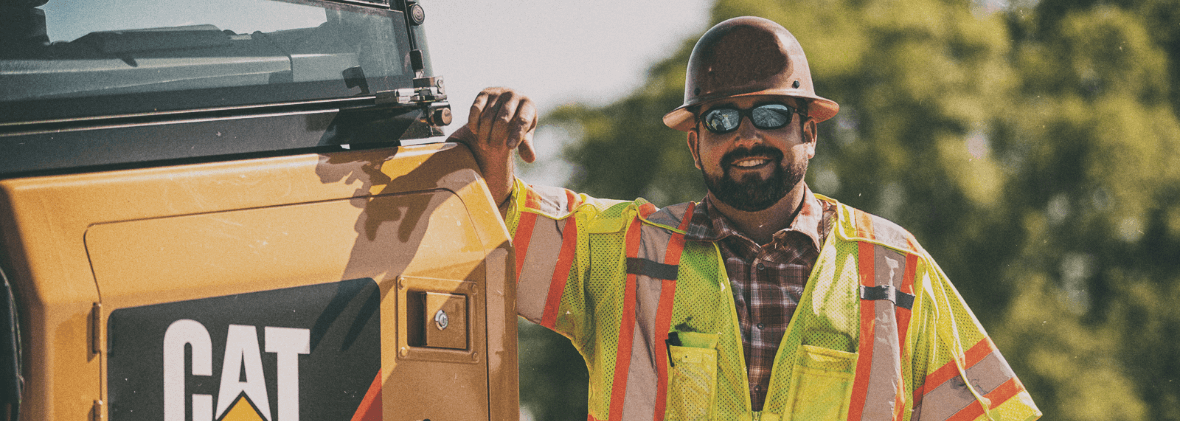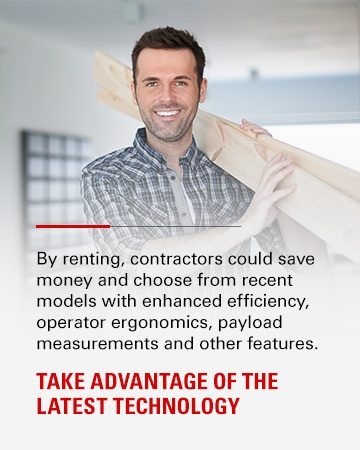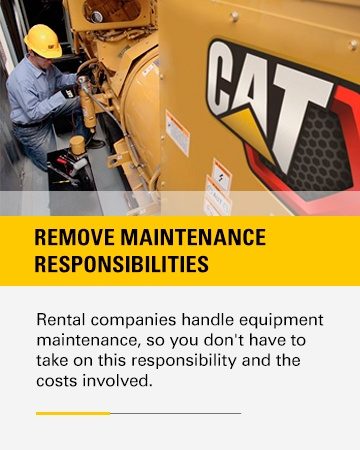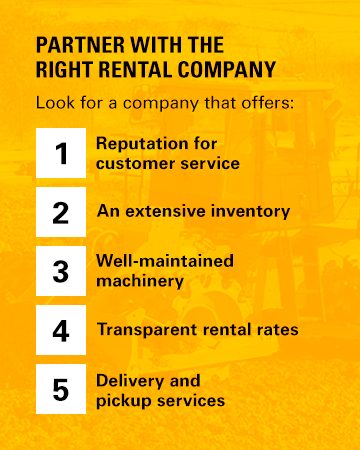
Independent Contractors and Rental Equipment
For independent contractors, having access to the right tools is crucial. You’re responsible for showing up ready with the machines and attachments needed to complete a project. Owning every possible machine isn’t realistic, which is why contractor equipment rental is becoming a go-to solution. Renting gives you flexibility, saves money, and ensures you never turn down work for lack of tools.
A Contractor's Responsibility to Provide Their Own Equipment
Independent contractors work for themselves rather than as employees. That distinction means you’re expected to bring your own equipment, whether you’re hired directly by a homeowner or subcontracted on a larger project. If you were hired to install a fence, the homeowner wouldn’t hand you a post hole digger — they expect you to supply the tools. The same applies on commercial job sites. General contractors and subcontractors alike assume you’ll have what’s needed. Because buying every tool and machine is impractical, renting helps fill those gaps and ensures you show up prepared.
The Rising Popularity of Equipment Rental
The perception of rental has changed dramatically in recent decades. During the Great Recession, contractors facing financial pressure turned to rental as a way to avoid debt and maintain flexibility. Even after the economy recovered, renting continued to grow. Today, more than 90% of construction contractors report renting equipment at least once a year; over half expect to increase their rentals. In the U.S., the heavy equipment rental industry is worth about $46 billion and global projections expect the market to surpass $170 billion by 2026.
Benefits of Renting for Independent Contractors
Contractor equipment rental offers unique advantages that ownership can’t match:
Expand Your Services
Without rental access, you may have to decline projects outside your owned equipment’s scope. Renting lets you take on additional services, upsell clients mid-project, and avoid losing business to competitors. For example, if you’re landscaping and a client asks for an in-ground pool, renting an excavator makes it possible.
Save Money and Protect Cash Flow
Ownership ties up cash in down payments and long-term loans. Machines that sit idle most of the year drain revenue. A general industry rule is that if a machine is idle more than 60–70% of the time, renting is the better option. Renting also avoids depreciation and resale headaches.
Access to the Latest Technology
Rental companies refresh their fleets often, meaning you get newer models with improved safety, fuel efficiency, and operator features. This eliminates the outdated-equipment concerns some contractors have.
No Maintenance Burden
Ownership includes routine maintenance, surprise repair bills, and scheduling downtime. Rentals shift that responsibility to the dealer. You receive well-maintained equipment; if something breaks down, the dealer provides service or replacement.
Simplify Storage and Transport
Owning large equipment requires secure storage and transportation logistics, often involving permits and long hauls. Renting locally allows the dealer to deliver and pick up machines at your jobsite, reducing hassle and cost.
Try Before You Buy
Considering a purchase? Renting lets you test multiple models under real conditions. Whether it’s choosing between a backhoe loader or mini excavator, renting gives you firsthand experience to guide investment decisions.
Tips for Independent Contractors Renting Equipment
To maximize the value of your rentals, follow these best practices:
Choose the Right Rental Partner
Look for companies with a strong reputation, transparent pricing, and a wide selection of equipment. Ask about maintenance standards and whether they offer delivery and pickup services for added convenience.
Understand Rental Durations
One-off rentals are best for single jobs, short-term rentals work for projects spanning weeks, and long-term rentals can extend months or longer. Match your rental type to project timelines to avoid overpaying.
Review Contracts Carefully
Check liability clauses, maintenance responsibilities, and hidden fees. A clear agreement protects you from unexpected costs or misunderstandings.
Why Rental Growth Will Continue
Rental demand is rising across industries as more contractors recognize the financial and operational benefits. Independent contractors, in particular, benefit from the ability to scale services without locking up cash. Technology advancements and growing dealer networks mean rental is only becoming more accessible and cost-effective.
Contractor Equipment Rentals From The Cat® Rental Store
The Cat® Rental Store offers contractors a global network of 1,300+ locations loaded with Cat machines and equipment from other top brands. Dealers provide expert support, well-maintained equipment, and flexible contracts. Explore rental benefits online or browse available machines.
Find The Cat Rental Store Near You


